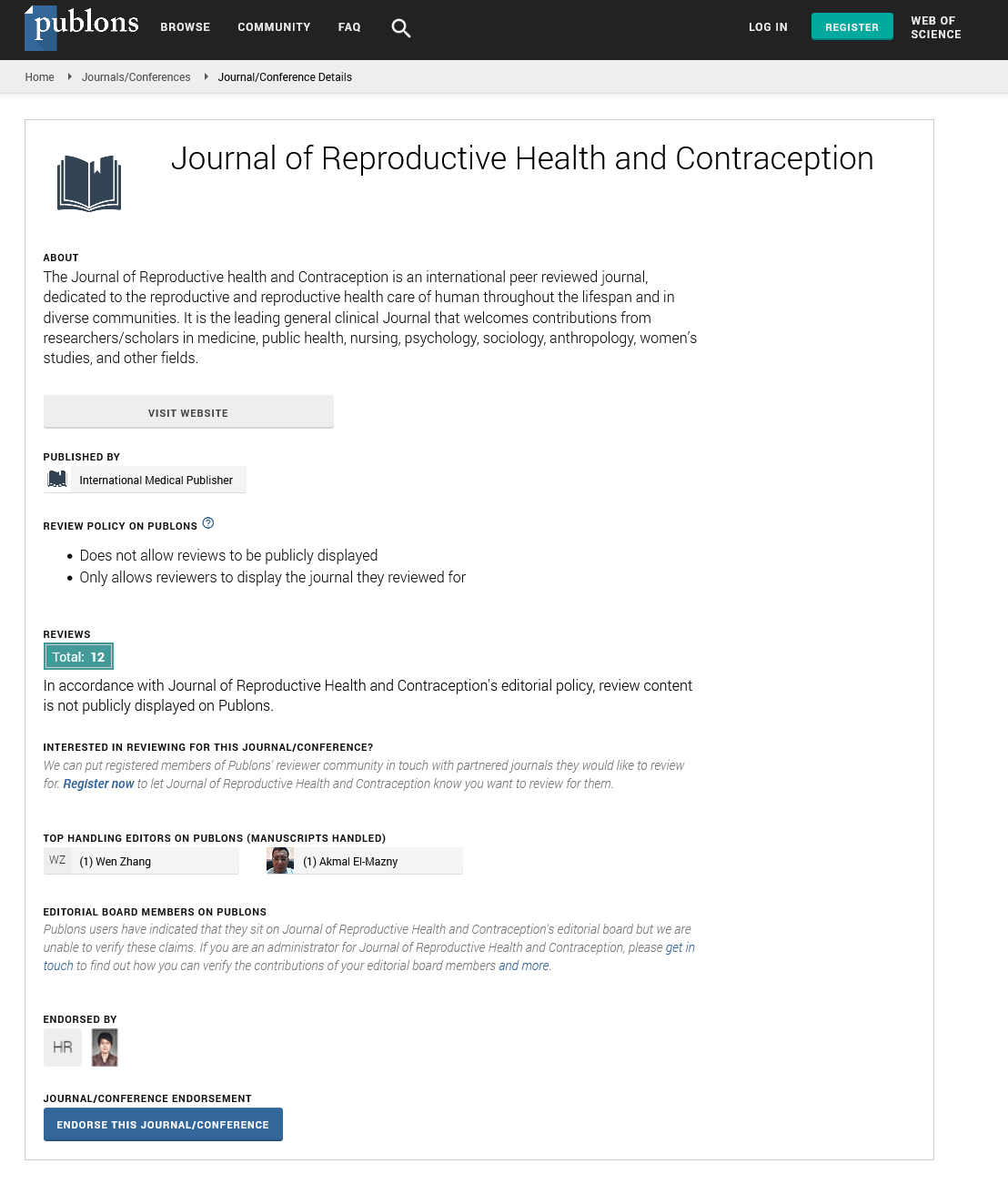ISSN : 2471-9749
Journal of Reproductive Health and Contraception
Stressors and coping strategies among nursing students during the COVID-19 pandemic: Scoping review
International Congress on Midwifery and Maternal Health
October 13, 2022 | Webinar
Aisha B Majrashi
King Abdul-Aziz University, Saudi Arabia
ScientificTracks Abstracts: J Contracept Stud
Abstract
Statement of the Problem: The coronavirus disease 2019 (COVID-19) pandemic is the latest global health disaster of the century with high morbidity and mortality rates. In December 2019, a new infectious respiratory disease appeared in Wuhan, China. The World Health Organization (WHO) named the disease “COVID-19” after confirming its pandemic level potential. COVID-19 has impacted every aspect of life around the world. Nursing education has moved classes online. Undoubtedly, the period has been stressful for nursing students. This scoping review aimed to explore the relevant evidence related to stressors and coping strategies among nursing students during the COVID-19 pandemic. The scoping review methodology was used to map the relevant evidence and synthesize the findings by framing the research question using PICOT, determining the keywords, eligibility criteria, searching the CINAHL, MEDLINE, and PubMed databases for the relevant studies. The review further involved study selection based on the PRISMA flow diagram, charting the data, collecting, and summarizing the findings. The critical analysis of findings from the 13 journal articles showed that the COVID-19 period has been stressful for nursing students with classes moving online. Conclusion & Significance: The nursing students feared the COVID-19 virus along with experiencing anxiety and stressful situations due to distance learning, clinical training, assignments, and educational workloads. Nursing students applied coping strategies of seeking information and consultation, staying optimistic, and transference. The pandemic affected the psychological health of learners as they adjusted to the new learning structure. Future studies should deliberate on mental issues and solutions facing nursing students during the COVID-19 pandemic.
Biography
Aisha Majrashi a professional Saudi nurse with 14 years of experience in nursing field, seeking a role in nursing leadership and professional development. I have good team-playing, creative thinking, problem-solving, prioritizing, effective communication and interpersonal skills.
Google Scholar citation report
Citations : 201
Journal of Reproductive Health and Contraception received 201 citations as per Google Scholar report
Journal of Reproductive Health and Contraception peer review process verified at publons
Abstracted/Indexed in
- Google Scholar
- China National Knowledge Infrastructure (CNKI)
- WorldCat
- Publons
Open Access Journals
- Aquaculture & Veterinary Science
- Chemistry & Chemical Sciences
- Clinical Sciences
- Engineering
- General Science
- Genetics & Molecular Biology
- Health Care & Nursing
- Immunology & Microbiology
- Materials Science
- Mathematics & Physics
- Medical Sciences
- Neurology & Psychiatry
- Oncology & Cancer Science
- Pharmaceutical Sciences
